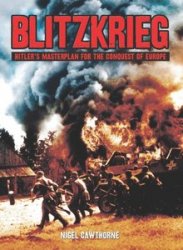The Spokan, or Spokane, Indians occupied ancestral territory along the Spokane River, a tributary of the Columbia River, in what now is the eastern part of the state of Washington as well as northern Idaho. Their name, pronounced spo-KAN, probably means “people of the Sun.” The Spokan are among those Salishan-speaking peoples classified as PLATEAU INDIANS. Other Salishans to the west are considered NORTHWEST COAST INDIANS. For Plateau peoples, fishing the Columbia River and its tributaries—especially for salmon during their freshwater spawning runs—pro-vided a staple food, as did gathering wild roots, such as camas. Like other area tribes, the Spokan lived in circular dwellings placed over shallow pits and constructed out of pole frames with grass or woven-mat coverings.
Meriwether Lewis and William Clark had contact with the Spokan in 1805 during their expedition to the American Northwest. Fur trade in the region was developed in the following years by the North West Company and the Hudson’s Bay Company of Canada, as well as by John Jacob Astor’s American Fur Company. Astor, through the fur trade with western tribes, became the richest man in America.
The Spokan had peaceful relations with non-Indians until the late 1850s. They suffered the impact of smallpox epidemics in 1846 and 1852—53. They witnessed the Cayuse War of 1847-50, resulting in part from an outbreak of measles among the CAYUSE. They saw the whites break the terms of the Walla Walla Council of 1855. They saw the Yakama War of 1855-56, resulting from the killing by whites of YAKAMA women and children. When miners and settlers unfairly took their lands, they too revolted. They joined the COEUR d’alene, Yakama, PALOUSE, and PAIUTE in a general uprising in 1858. This conflict is known as both the Coeur d’Alene War and the Spokan War.
After the war, the Spokan settled on various reservations, including the Spokane Reservation near present-day Wellpinit, Washington, and the Colville Reservation near present-day Nespelem, Washington. Others joined the FLATHEAD, another Salishan-speaking people, on their reservation near present-day Dixon, Montana.
The completion of the Grande Coulee Dam on the Columbia River in 1941, blocking miles of fish runs, hurt the Spokan economy. The discovery of uranium oxide on the Spokane Reservation in 1954 led to a new source of income for tribal members. Other reservation endeavors are a lumber mill and a fish hatchery. The tribe also operate the Chewelah Casino in Chewelah, Washington, and the Two Rivers Casino near Lake Roosevelt, providing income for other investments.




 World History
World History









